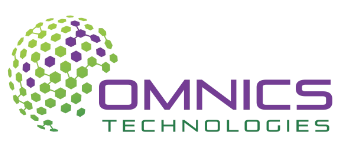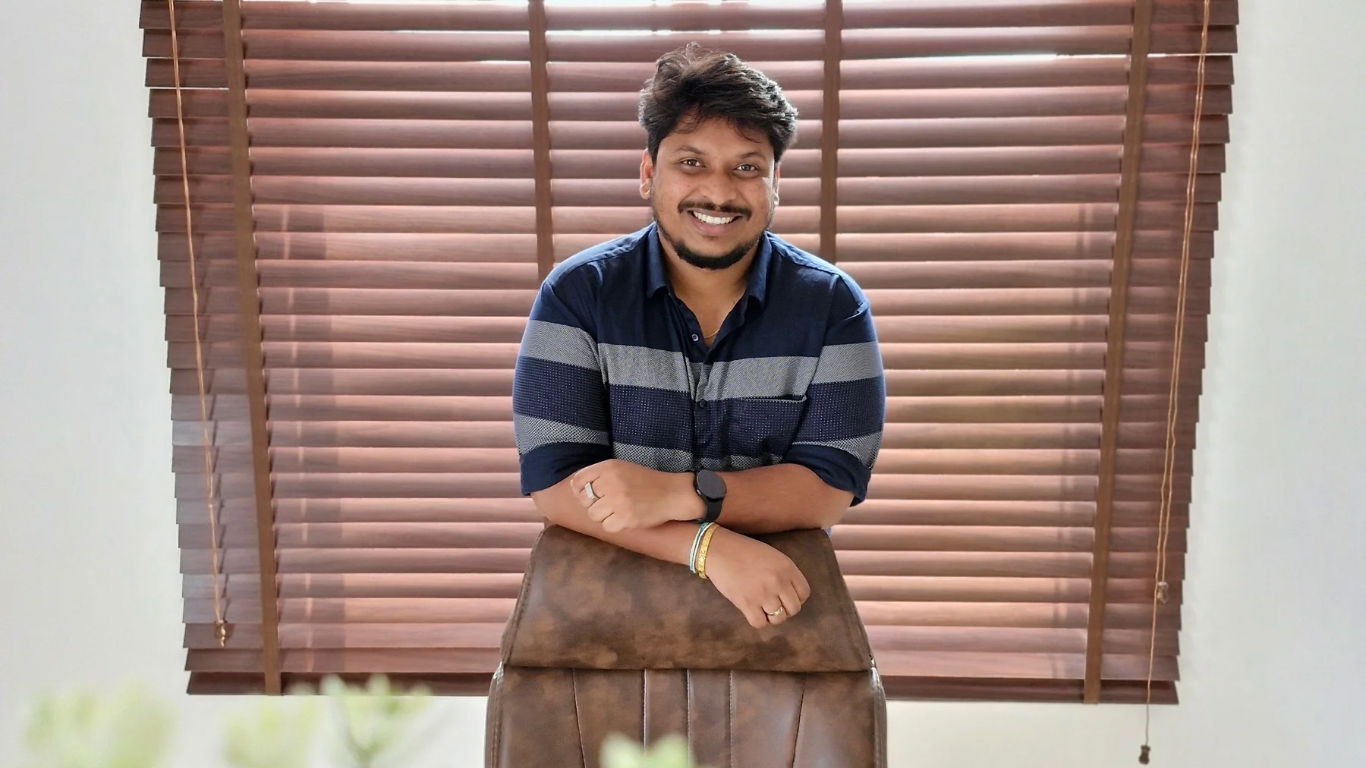Visionary Leadership: Vishwanath Sunkari, A Manager’s Journey and Vision at Omnics
We’re excited to delve into the journey of Vishwanath Sunkari, a key manager at Omnics. From his beginnings as a curious developer to his current role leading impactful projects, Viswanath’s story is one of growth, resilience, and innovation. Join us as we explore the experiences and vision that have shaped his remarkable career at Omnics.
Vishwanath, can you share your journey as a developer and what inspired you to pursue a career in technology?
Certainly! My interest in technology began with a fascination for how things work. Growing up, I didn’t have a laptop and relied on a small touch-screen phone for everything. I used it to watch YouTube videos, check emails, and use various apps on that phone. I was always curious about what happened in the backend and how these applications worked. Even when checking competitive exam results online, I would wonder how the systems operated. This curiosity drove me to pursue a degree in Computer Science and Engineering. The constant question of “why” ignited my passion for the software industry.
My journey as a developer began in November 2016 when I landed a job at my dream company. Initially, I underwent training in development, which was my passion. However, after training, I was assigned to a testing project, which was not what I had hoped for. This unexpected shift was quite disheartening as it was a random assignment without any clear basis.
Rather than leaving the company, I decided to prove myself. I worked on self-initiated development projects in my extra time, creating front-end, back-end, and database solutions independently. My colleagues and managers were impressed, but I still wasn’t given a development role. Feeling undervalued, I resigned and served my notice period.
Soon after, I joined another MNC and was thrilled to work on an Angular project. The small team allowed me to take on significant work, and my efforts were recognised. Later, I moved to a complex React project. Despite facing many challenges and a lack of guidance, I managed development and team management, often working long hours, which affected my family time.
Through many experiences, from starting with the testing project to now serving as a project manager, it has been a great learning journey.
How did you end up joining this company, and what was your initial role?
It’s an interesting journey! Ravi, who’s a co-founder and a long-time friend, reached out to me about helping with mobile app development using React Native. At the time, I couldn’t commit fully because of other obligations, so I suggested my friend Anurag, who had the right expertise.
Anurag joined the team and delivered exceptional results, which really impressed Florian and helped gain the trust. It was crucial to earn that trust, and Anurag’s performance was key in demonstrating the talent available in India.
Seeing the positive results, Florian, Franzi, and Ravi decided to move forward with the company. When the opportunity came for me to join, it was an exciting chance to work with friends and contribute to something we all believed in. It’s been fantastic to watch the company grow from an idea to a team of 25 people.
And i had to share a memorable moment during an interview with a startup in 2019. I mentioned my dream of starting a company with my friends, and the HR person was very supportive. She even said she’d be interested in joining as an HR once we got the company off the ground. When Omnics finally launched, I reached out to her. Even though she had moved on from software, she congratulated me. It was a fulfilling moment to see a dream come true.
What challenges did you encounter when transitioning from a developer to a project manager?
Transitioning from a developer to a project manager definitely came with its own set of challenges. As a developer, I was focused on my code and tasks, but as a project manager, I needed to shift to overseeing the whole project and balancing the needs of both the team and the clients.
One major challenge was learning to manage and motivate the team while ensuring everyone followed guidelines and stayed satisfied with their work. I recall a manager at my previous company who handled this exceptionally well. He was always approachable and didn’t put undue pressure on the team, which was truly inspiring. I’ve tried to emulate his approach by being supportive and fair, making sure that no one feels overwhelmed.
Another challenge was handling client requirements and translating them into actionable tasks for the team. It’s more complex than just getting tasks done; it involves understanding client needs, coordinating with the team, and making sure we deliver on time. Initially, it was tough to shift from a developer’s perspective to seeing things from a broader organisational viewpoint, but over time, I’ve gotten better at balancing these different aspects. Now, everything seems to be on track.
How do you find working with higher management at Omnics?
Working with higher management at Omnics has been a positive experience. Although I’ve known Ravi for many years, we maintain a professional relationship at work. Our interactions are focused on project goals and work requirements, and he treats everyone with fairness and respect.
I also have a great rapport with Florian and Franzi. I met them before joining the company, and they were very welcoming from the start. My enthusiasm for the role and the opportunity to work with such a supportive team made joining Omnics an easy decision. I was so eager to be a part of the team that I even returned my joining bonus from my previous job just to come here.
Overall, the management team here is very approachable. They’re open to new ideas and give us the freedom to explore them while ensuring we remain accountable for our responsibilities. The environment is collaborative and encouraging, making it a great place to work.
How do you create a productive and collaborative environment in your team while also supporting individual growth?
I think it’s all about striking the right balance. I encourage team members to take ownership of their work, which means doing their own research and understanding what’s needed. This way, no one feels overly dependent on others, and everyone can tackle challenges independently. It’s important for personal growth and ensures everyone can handle things even if help isn’t immediately available.
I also stress the importance of work-life balance. If we’re productive during work hours, there’s no need to think about work once we’re home. This helps prevent burnout and keeps everyone refreshed.
Continuous learning and creativity are key too. I believe it’s important for developers to keep learning new things—it not only boosts their skills but also adds value to their career growth.
In terms of team dynamics, I try to keep things relaxed. I’m often called ‘Mr. Cool Captain’ because I avoid putting unnecessary pressure on the team. Even though I may sometimes call outside of normal hours, I ensure it’s for urgent matters, and the team knows I value their time. I make it a point to connect with the team daily and engage in informal conversations during breaks. Sharing coffee during stressful times helps everyone unwind and strengthens our bond. Overall, I value having a strong, supportive relationship with each team member.
What do you like most about working at Omnics?
What I appreciate most about working at Omnics is our management’s commitment to employee satisfaction. Our leadership has a shared goal of ensuring that the negative experiences of the past are not repeated, and they prioritise creating a positive work environment. This includes maintaining a healthy work-life balance, recognising and appreciating employees, and organising fun activities like Friday events and team cricket matches.
We also emphasise the importance of regular feedback and actively welcome ideas for improvement, making everyone feel like a valued part of the Omnics family. There’s a strong focus on not pressuring employees to work beyond their capacity and ensuring that work hours are manageable. Overall, it’s the supportive and inclusive culture that makes working here truly enjoyable.
What advice would you give to freshers starting out in the IT field?
One key piece of advice I’d give is to focus on self-learning. Take the initiative to explore and learn things on your own. It really helps you dig deeper and understand the ‘why’ behind things, not just the ‘how.’ Plus, practical experience is invaluable—hands-on work is where you’ll learn the most.
Another important factor is enthusiasm. If you’re genuinely excited about what you’re doing, you’ll find it easier to tackle challenges and stay motivated. Passion makes a big difference when things get tough.
And don’t forget to be persistent. The road will have its fair share of obstacles, but the key is to keep going and not give up. I followed these principles when I started, and they’ve been incredibly helpful. Remember, continuous learning is essential. If you stop learning, you’ll stall; keep pushing forward, and you’ll keep growing.
Looking back, what’s the most important lesson you’ve learned in your career?
Over the years, I’ve seen a lot of office politics and unfair treatment. It was disheartening to see talented people not getting the opportunities they deserved. This made me realise how important it is to create a fair and honest workplace. I’m really lucky to work at a company now where everyone shares this mindset. We’ve built a place where people are genuinely passionate about their work and go the extra mile because they care.
Looking ahead, I hope more companies adopt this approach. The way a company treats its employees really shapes its future. If we focus on treating people well and making sure they’re happy, the whole company benefits. No matter where I am in my career, I want to keep these values at the core of everything I do because that’s what truly leads to success.
What inspires you professionally and personally? Who is a role model in your life?
For me, my biggest role model is my mother. Her patience and determination are truly remarkable. She’s taught me that perseverance is key—no matter how tough things get, you have to keep going. Her ability to push through challenges and her belief in never giving up have profoundly influenced me. Watching her navigate life’s ups and downs with such grace and grit has been a constant reminder to stay resilient and focused on my own goals.
I believe in the quote, “The past never dies; it shapes itself based on how we choose to view it.” Seeing our past as a collection of lessons turns it into a series of stepping stones for our future. Every mistake becomes a valuable learning opportunity, guiding us toward our goals. Even when we achieve a milestone, the journey doesn’t stop. Reaching a goal should lead us to set new short-term objectives, each one advancing our long-term vision.
This perspective helps me stay motivated and keep pushing forward, no matter the circumstances.
Vishwanath’s journey is a fascinating narrative of growth and leadership, inspiring the next generation of tech innovators to pursue their own paths of discovery and success. At Omnics, we are committed to cultivating talent, accelerating development, and uniting a team passionate about pushing the boundaries of technology and excellence.


 Photo by Sean Pollock on Unsplash
Photo by Sean Pollock on Unsplash Photo by Adi Goldstein on Unsplash
Photo by Adi Goldstein on Unsplash